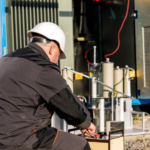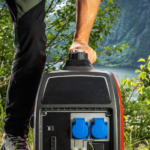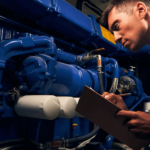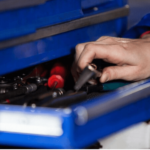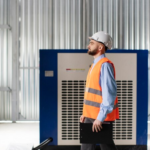When you’re in the market for a diesel generator, Kubota is known for its reliable, efficient, and long-lasting models that cater to a wide range of applications. Whether you’re looking for backup power for your home, support for a construction site, or a solution for agricultural work, the right diesel generator selection depends on a clear understanding of your specific needs.
If you are looking forward to buying a Kubota diesel generator, this guide may be quite helpful. Let’s have a look at some essential steps and considerations that can help you make the right decision so that your investment delivers maximum value.
Why Choose Kubota Diesel Generators?
Trusted Reliability and Efficiency
Kubota has a solid reputation for manufacturing diesel generators that provide reliability and fuel efficiency. These generators are designed to operate efficiently under heavy loads and in tough conditions, offering an advantage over many other brands. With Kubota, you know you’re investing in a generator built to last, even with frequent use in demanding settings.
Durability Across Models
One of the biggest appeals of Kubota diesel generators is their durability. Kubota engines are constructed to withstand prolonged use and harsh environments, meaning they can serve as a dependable solution for anyone needing consistent power over long periods. Their durability extends across various models, from portable to fixed installations, making them suitable for both commercial and residential settings.
Steps To Select The Right Kubota Diesel Generator
Step 1: Understand Your Power Requirements
The first step in choosing any generator is determining the amount of power you need. Selecting a generator that doesn’t meet your power needs will result in inadequate performance, while an oversized unit can lead to unnecessary fuel expenses. Kubota diesel generators are available in different capacities, and choosing the right size involves evaluating your overall power demand.
- Identify Essential Appliances and Tools: List out all the items you plan to power. For example, in a home setup, your essentials might include refrigerators, air conditioners, and lighting, while a construction site might use tools and heavy machinery.
- Add Up the Wattage: Each appliance or tool requires a specific wattage to operate, so add up the power requirements to get a rough estimate of your needs. You’ll need to account for both running and starting wattages, especially for tools and appliances that require a power surge to start up.
- Choose a Generator by Power Range: Kubota offers a variety of models that cater to different needs. For small to medium-sized homes, a 5-10 kW model might be sufficient, while larger commercial applications may need a 10-30 kW generator.
Step 2: Determine Single-Phase or Three-Phase Power Requirements
Kubota provides both single-phase and three-phase generator models. The type of generator you need depends on your usage:
- Single-Phase Generators: Ideal for most residential setups and small businesses. These generators supply consistent power suitable for typical household appliances and basic office equipment.
- Three-Phase Generators: Better suited for industrial applications where higher wattage and steady power are required. Three-phase power is more efficient for large machinery and equipment commonly found on construction sites and industrial facilities.
Step 3: Consider Portability vs. Fixed Installations
Kubota’s range includes both portable and stationary generators, and your decision here will largely depend on the intended application and required power capacity.
Portable Generators for Versatile Use
Portable generators, like the Kubota GL Series, offer flexibility for users who need to move the generator between locations. This is especially beneficial for construction sites or event setups where power needs shift regularly. Portable generators are designed for easy transport, usually with wheels or handles for mobility, and they generally have a smaller footprint.
Fixed Installations for Consistent Power Supply
For homes or businesses requiring a reliable backup power source, a stationary or fixed installation is ideal. These models offer higher capacity durability and often feature weather-resistant housing. Fixed models are typically installed outside buildings and connected directly to the main power supply for a seamless transition during power outages.
Step 4: Evaluate Fuel Efficiency and Noise Levels
Fuel efficiency is a significant consideration when choosing a generator, as it directly affects long-term operational costs. Additionally, noise levels are essential for residential or urban use where excessive noise can be disruptive.
Kubota diesel generators are known for their excellent fuel efficiency, making them economical to operate. Diesel fuel is generally more energy-dense than gasoline, and Kubota engines are optimized to consume less fuel without sacrificing power output. Lower fuel consumption translates to fewer refueling stops and a reduced environmental footprint, which is beneficial for both the wallet and the planet.
Kubota models like the Lowboy II series are designed to operate quietly, with some units producing sound levels under 65 decibels, which is quieter than many other diesel generators on the market. For homeowners and businesses in residential areas, a quiet generator minimizes noise disruption, making Kubota an attractive choice for noise-sensitive environments.
Step 5: Assess Environmental and Weather Durability
Outdoor conditions and environmental factors should influence your choice of generator, particularly for long-term or outdoor applications.
Weather-Resistant Models for Outdoor Use
If your generator will be exposed to varying weather conditions, a weather-resistant model is essential. Kubota’s SQ Series, for instance, includes features such as corrosion-resistant frames, sealed control panels, and weatherproof housing. This makes them ideal for outdoor installations or regions with extreme climates so that the generator maintains peak performance in harsh conditions.
Compliance with Environmental Regulations
In areas with strict emission standards, it’s essential to select a generator that complies with local regulations. Many Kubota generators meet EPA and CARB standards, which reduce emissions and environmental impact, which is especially relevant for businesses and individuals committed to sustainability.
Step 6: Look for Specialized Features
Certain features can greatly increase the utility and ease of use of your generator. Consider what additional functions might suit your specific needs.
Automatic start/stop functionality is especially helpful for standby power applications. Kubota offers models with this feature, which automatically powers the generator in the event of a power outage and turns it off once electricity is restored. This eliminates the need for manual operation, making it an ideal feature for backup power setups.
For larger commercial setups or remote operations, remote monitoring and control features are highly valuable. This function allows you to monitor the generator’s performance and status from a distance, which can help in maintaining efficient operation and timely intervention if issues arise.
Step 7: Factor in Budget and Long-Term Value
While the initial cost of a generator is an essential consideration, so is the total cost of ownership. Kubota diesel generators may have a higher upfront cost, but they often prove to be more economical in the long run due to durability, fuel efficiency, and reduced maintenance needs.
Opting for a Kubota generator may represent a higher initial investment, but the reduced running and maintenance costs make it a valuable long-term investment. The high build quality of Kubota generators reduces downtime and the frequency of costly repairs, providing a reliable power source and significant savings over time.
Kubota provides extensive support services through its network of authorized dealers. This support includes access to genuine parts, routine maintenance options, and technical assistance, helping to prolong the lifespan of your generator so that it remains in optimal condition.
Step 8: Consult a Kubota Dealer for Expert Advice
If you’re uncertain about the best power generator in the UAE for your specific needs, a Kubota dealer like BlueDot Trading LLC can provide expert recommendations. We have in-depth knowledge of Kubota’s product range and can offer insights into which model will best suit your power demands and intended application.
Customized Solutions for Unique Applications
Whether you’re powering a construction site or preparing a reliable backup for your home, consulting with reliable generator suppliers in Dubai like BlueDot Trading LLC provides you with a customized approach to generator selection. We can provide guidance on model-specific benefits, installation tips, and specialized requirements based on your application.
Installation and Ongoing Maintenance
We also offer professional installation services so that your generator is set up correctly for maximum efficiency. A maintenance plan from a Kubota-certified technician can simplify the upkeep of your generator, reducing the hassle of managing servicing schedules and providing a proactive approach to generator care.
Summing It Up
Selecting the right Kubota diesel generator involves evaluating your power needs, installation type, desired features, and environmental considerations. Kubota’s range of high-quality, durable generators offers solutions for diverse applications, from residential to industrial. By following these steps and consulting with a Kubota dealer for specialized guidance, you can make a choice that provides reliable power and excellent value over time. With the right Kubota generator, you can enjoy peace of mind knowing your power needs are consistently met.




